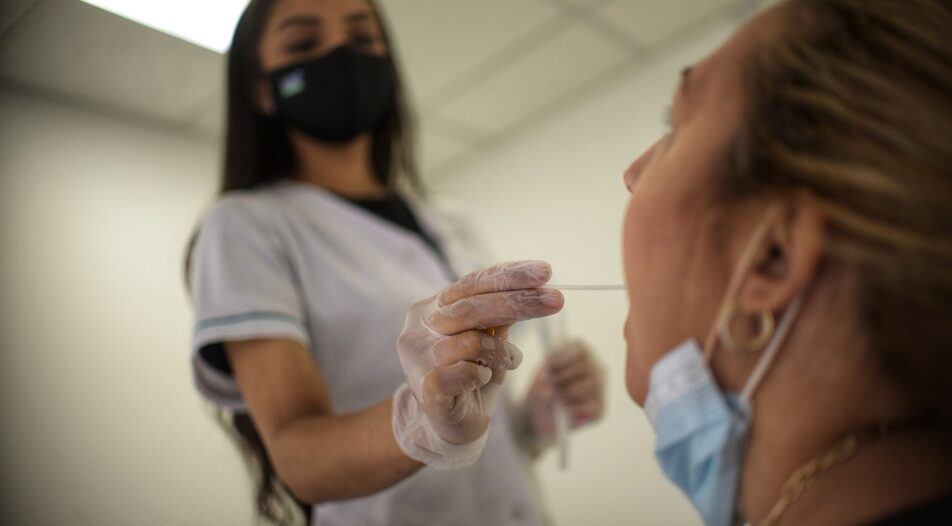Bulgaria is entering its fourth - and, by far, biggest in terms of the numbers of new cases - Covid-19 wave. This has led to an adjustment to the pandemic response plan from the new health authorities appointed by Prime Minister Kiril Petkov - now regions will be at the heart of measures and restrictions and the pivotal benchmark for the planned mild local lockdowns will be the number of intensive care beds occupied at any given time.
The big question is whether the new authorities will, in fact, stick to the terms they set out in the National Operational Plan for Combating Covid-19 last week. As Kapital Insights wrote in September of last year - at the onset of the third wave of infections - caretaker Health Minister Stoycho Katsarov also entered office with a clear plan to counter the spread of the pandemic, only to shelve it once cases started rising.
"What is happening in Bulgaria at the moment is tragic," WHO representative to Sofia Skender Sila told the National Radio last week, referring to the death toll caused by Covid-19 and exacerbated by the lack of trust in vaccinations. The tragedy may continue if the new authorities repeat the mistakes of the previous two governments and cave in to populist demands instead of following their own containment strategy.
So, what is the new plan to contain Covid?
Clusters over nation-wide measures
As noted above, at the heart of the new system of restrictions would be the number of occupied intensive care beds in hospitals. Instead of looking at hospitalization rates in the administrative regions of the country, the authorities will base their decision-making on six clusters of regions in the same neighborhood. The risk level would be divided into four stages, with increasingly stricter measures imposed when intensive care units are at 50, 60, 70 and 80 percent full, respectively.
In the fourth and final stage, businesses will be forced to close alongside schools, except for grocery stores, pharmacies, drugstores, banks, post offices and courier services. However, even at this final stage, the authorities have left the door open to letting the youngest pupils (years one to four) remain in physical class if their municipality has a relatively low incidence of the illness and there are still enough hospital beds left for children.
Warning and support for businesses, families
The cluster zoning would be accompanied with an online early warning system which will have a 3- and 5- day prognosis for the infection rates, so that businesses and households can prepare for potential closures of public venues and schools. Additionally, the cluster system would aim to optimize the use of available hospital spaces between regions and allow for potential transfer of patients.
Different clusters will impose different restrictive measures depending on which of the four stages they are at. Prime Minister Petkov announced a new support line for businesses forced to close shop in addition to the existing measures. "It applies only to micro- and small enterprises that have been forced to shut down completely and provide a grant amounting to 20 percent of the average net revenue from 2021 of up to 100,000 BGN. If your business is closed because of Stage Four, the state will support you for the days you stayed closed," he said.
Focus on children and students
In addition, Mr Petkov's team noted that they will prioritize children and especially their access to in-person education. "Schools and special education support centers will be closed only as a last resort and kindergartens will not close at all," Education Minister Nikolay Denkov commented last week.
At Stage One of the new plan, when 50 percent occupancy of intensive care beds is reached, schools will remain open, but with increased controls on wearing masks, providing physical distance, disinfection, requiring a Green Certificate for teachers, and testing students lacking such once every week. Group activities would continue, but without mixing students from different classes. Organized activities with pupils outside of schools would be suspended. At 60 percent occupancy, student activities, except for after-school care, would cease.
In the third phase, if 70 percent of beds are filled, children in grades 1-4 will remain in attendance, but grades 5-12 will attend school on a rotational basis, with half of students studying in person and the other half - online. In the last, Fourth Stage, classes for the grades between 5-12 will move entirely online and those in grades 1-4 will maintain their in-person classes if possible. An exception would be made for smaller localities that have half the morbidity rate than is the case in their respective district, and where there are enough hospital beds. There, students in grades 1-4 can stay in school even if the district remains in Stage Four.
Relaxing quarantine rules amidst a new infections rise
Just before the new plan was presented, Health Minister Asena Serbezova eased down quarantine rules for people who have recovered from Covid-19 or who have interacted with sick individuals without contracting the disease. The mandatory isolation for newly diagnosed Covid patients went down from 14 to 10 days, while the quarantine for their relatives decreased from 10 to 7 days. Additionally, people with a booster dose from a Covid vaccine who do not show symptoms 72 hours after they have interacted with a sick individual could be released from quarantine early.
The new plan to fight Covid comes as the number of newly recorded infections skyrocketed, coming close to 10,000 on Tuesday after a week of 5-7,000 daily cases detected. While hospitalization levels and new deaths remain relatively low (by Bulgarian standards), the coming weeks will be pivotal for the development of the fourth Covid wave. Bulgaria's situation is by no means unique - various other countries have announced record-high infection rates, but the problem here is the ongoing low immunization rate.
Only 2 million Bulgarians, or under one third of the population, have undergone a full vaccination cycle, with a further 2 million people having received the first jab only, the Health Ministry announced this week. Vaccinations intensified slightly with the introduction of a 75 BGN bonus for pensioners who get the jab, as announced by the Petkov cabinet earlier this month, but the result is still far from ideal.
Bulgaria is entering its fourth - and, by far, biggest in terms of the numbers of new cases - Covid-19 wave. This has led to an adjustment to the pandemic response plan from the new health authorities appointed by Prime Minister Kiril Petkov - now regions will be at the heart of measures and restrictions and the pivotal benchmark for the planned mild local lockdowns will be the number of intensive care beds occupied at any given time.
The big question is whether the new authorities will, in fact, stick to the terms they set out in the National Operational Plan for Combating Covid-19 last week. As Kapital Insights wrote in September of last year - at the onset of the third wave of infections - caretaker Health Minister Stoycho Katsarov also entered office with a clear plan to counter the spread of the pandemic, only to shelve it once cases started rising.












